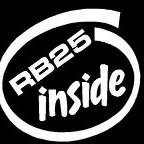An Idiots Guide To Driving In Japan
Announcements
-
Similar Content
-
Latest Posts
-
By Watermouse · Posted
GTSBoy on your suggestion on another thread I had a look at those injectors and ended up getting them because of the quality. Got the expensive ones. -
Hey guys been looking everywhere to try and find the correct gtr hood latch support part number but only found the first half and when I search with that number it sends me to an r34. The first part I found was 62515. If anyone could help me with the rest then I’d really appreciate it. Or if there’s some alternative hood latch support that would work even better cause I can’t find any for sale. (Searched on upgarage, partsouq,buyee,rhdjapan)
-
If you've only done the upper control arms on the rear, AND you have changed their length (by more than about 1mm) to set the camber you want, then you will definitely need/want to install traction arms also. Adjusting the camber arms on their own WILL introduce bump steer and make the car unpleasant to drive. Most owners have no idea that their car could behave infinitely better than what they put up with. I'm not entirely sure what the Stageas need, but I am thinking that unless you have massive front spring rates and pretty soft rear springs, you have waaaay too much rear bar. Oversteer city, in my estimation. Combined with possible excessive bump steer from maladjusted arms, that could be a recipe for nastiness. ATR43SS2 is not a highflow. It is an outright replacement turbo. It's a little bit bigger than the largest highflow profile that Tao does. Probably a solid 300rwkW turbo where the bigger highflows will be about 30-40rwkW less. Nevertheless, we're only talking about ~300 rwkW, which is well within the abilities of the stock ECu to run with a Nistune on board. I would do so without hesitation - and I will be doing so when I get my finger out and actually get the injectors and AFM installed. But, if you would prefer to drop a whole lot more money on the ECU side, then I suspect you're looking at Haltech. The Haltech fanbois here will all spout on about all the available engine protection you can have, that you can't have with the Nistune option. And they're right. But it doesn't really come for free either. You will spend more money on extra sensors and the like, plus the work to install them. If the engine was built and therefore represented a big investment to protect, then I'd say definitely do it. If you view the current (and forever into the future) shortage of replacement engines as something to prompt similar protection, then also, do it. If you see a destroyed RB25 as an opportunity to put in a Mercedes or other V12 (like I kinda do)... then your perception of the risk/reward might differ. These are good injectors. You can also get a "better" set of the same with more flow matching, for more $$. 1000cc is where you will want to be. You will need an R35 AFM and adapter tube if you want to stay with Nistuned stock ECU. Otherwise, if going Haltech, you can ignore. As for intercooler. Just about anything will do. You're only talking about ~300rwkW. Just put a big core in there. Be aware that return flows do add significant pressure drop and will cost power and will make the turbo work harder to achieve the same goals. If you can manage a proper crossflow, do it. I'm keeping my very good return flow because I'm only expecting to be in the ~250rwkW range, and will live with whatever outcome I get.
-
I have a heap that i have collected if you want some authentic ones still. Pm me if your interested!
-







Recommended Posts
Create an account or sign in to comment
You need to be a member in order to leave a comment
Create an account
Sign up for a new account in our community. It's easy!
Register a new accountSign in
Already have an account? Sign in here.
Sign In Now